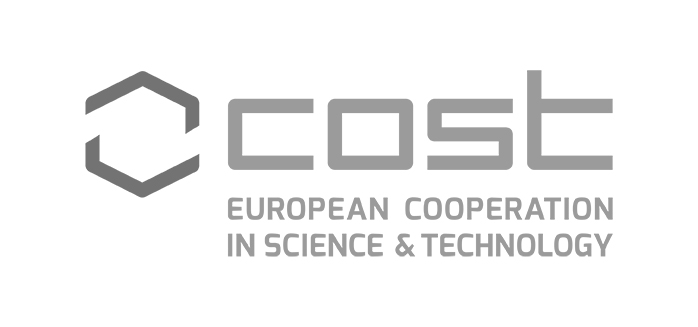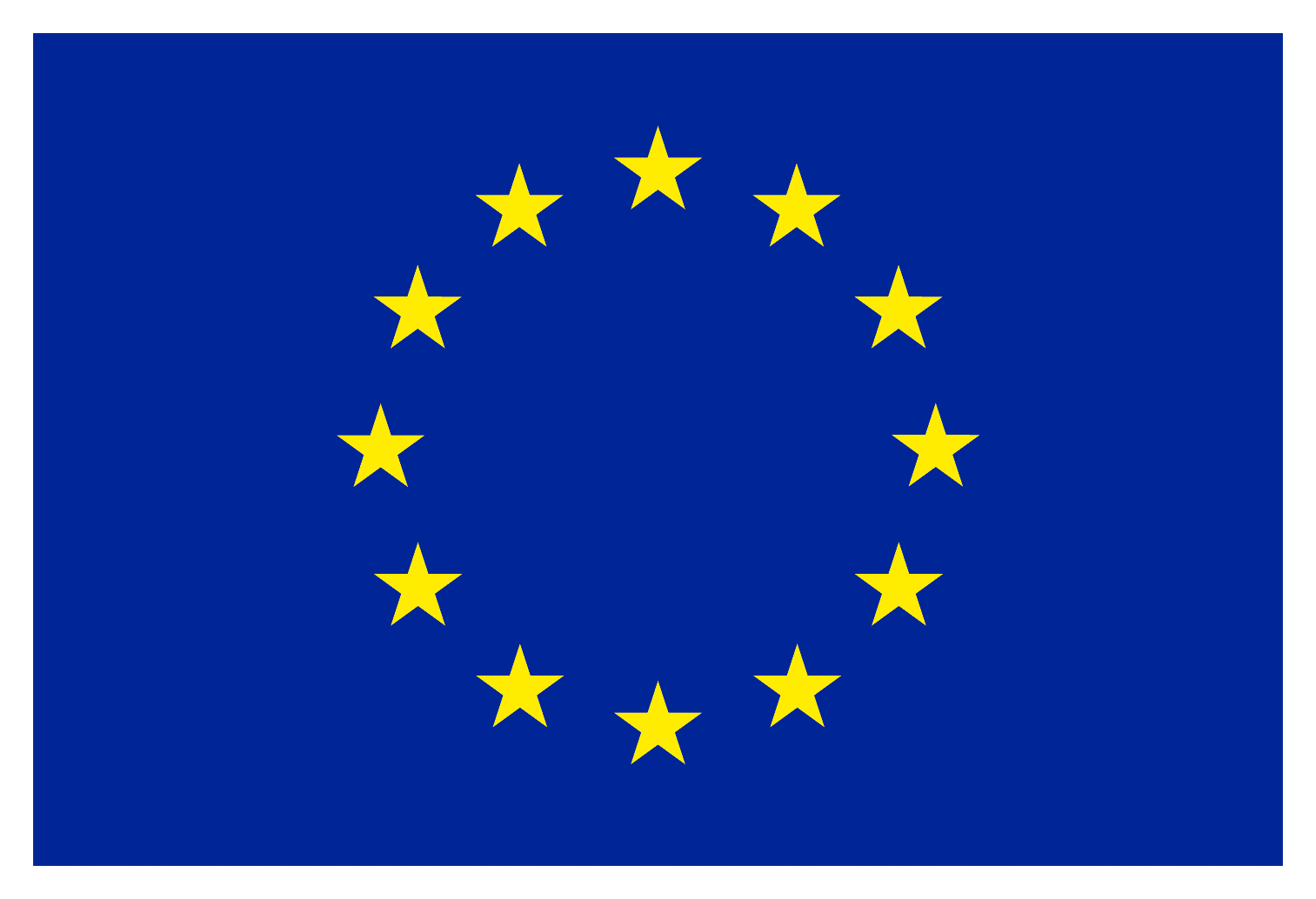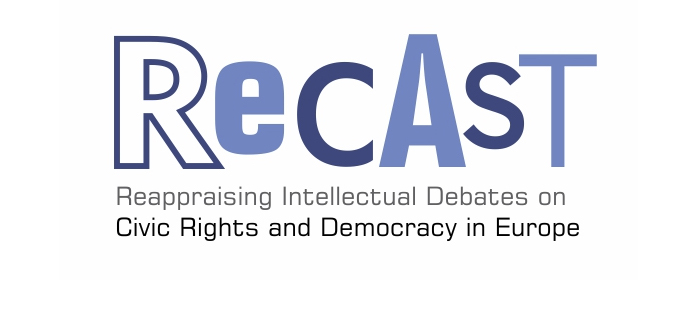Training School 2018 Edition
COST Action CA 16211 RECAST
Reappraising Intellectual Debates on Civic Rights and Democracy in Europe
Training School in the Humanities and the Social Sciences
Framing Democracy and Rights
Maria Curie-Skłodowska University, Lublin
5–7 December 2018
Convened by Maria Marczewska-Rytko and Sia Spiliopoulou Åkermark, the first edition of the RECAST Training School focuses on an interdisciplinary review and assessment of the historical contingencies, theoretical ramifications, and methodological choices involved in the nexus of issues of civic rights and democracy.
The goal of this first edition of the Training School is to open to discussion a range of possible approaches concerning the interrelation(s) of rights and democracy, and to look at the multifaceted questions, whose answers depend in part on specific political circumstances and in part on the evolution of notions of rights and democracy as complex and contingent efforts and ideas, rather than as a stringent, dogmatic, unified or constant intellectual or political agenda and theory.
Please find below the programme (posted after the selection of trainees) and the syllabus.
Programme
Syllabus
Opening Session
Prof. Maria Marczewska-Rytko, Maria Curie-Skłodowska University, Lublin
Populism as a Challenge for Liberal Democracy and Human Rights
According to the COST Action’s Memorandum of Understanding, ‘Anti-parliamentarism as a form of anti-systemic reaction, reminiscent of early twentieth century criticism, has disquietingly become an integral part of many right and left populist parties, especially since the 2000s, from France to Poland and Hungary, from the Netherlands to Germany and the Nordic countries. In less than fifteen years not only have they changed the European landscape of local governments. They are nurturing government options at both national and supranational politics’.
When defining the concept of populism, its three shots are indicated. In the first sense, populism is identified with the concept of demophilia and means idealizing the people, in the other it is a synonym of demagogy, and in the third one, questioning and rejecting the institutional framework of the given system. All these three approaches are present in the contemporary scientific and journalistic discourse on the issue of populism. Regardless of whether we are dealing with classic or contemporary approaches, the focus remains on a particular system of values, a system of ideas that can be defined as elements of the matrix of populism. They may occur both in the discursive layer (the significance of this layer has increased disproportionately compared to classic shots) as well as in the layer of social and political practice largely determined by globalization and integration processes nowadays (in essence, constituting the opposite pole for the indicated processes).
Thematic Sessions
Framing Rights
Dr. Graham Finlay, University College Dublin
From Rights to Equality
Rights are often understood as claim rights, in that they can be claimed as an obligation from someone. This common sense understanding, however, has often been understood as implying a libertarian understanding of equality, which tends to limit the space for political and democratic action. Through an exploration of correctives to this libertarian understanding and with reference to international and European human rights law, I will explore how a concern for social and economic rights can potentially lead to a strong version of equality, represented by the capability theory of Amartya Sen. None of the work of the theorists I will discuss, however, including that of Henry Shue, Thomas Pogge and Sen himself, is immune from criticism, particularly from the difficulties of combining a robust commitment to rights and human rights with democratic dialogue and participation.
Prof. Sia Spiliopoulou Åkermark, Åland Islands Peace Institute, Mariehamn
Universalism–Particularism and Rights: Are Rights a Component of, or an Obstacle to Democracy?
Most modern constitutions include lists of rights and rights have thus become part of domestic legal and political systems around the world. This is one of the outcomes of centuries long processes of interplay between domestic and international rights and democratic efforts and discourses. Constitutional struggles and the vindication of rights have thus evolved in tandem. The universality and universalistic ambition of rights is most clearly found in global agreements and documents such as the Universal Declaration of Human Rights adopted by the United Nations General Assembly (1948). The UN Declaration was premised after all upon an understanding of the ‘inherent dignity’ and the ‘equal and inalienable rights of all members of the human family’ as preconditions of ‘freedom, justice and peace in the world’.
Ensuring free political activity and individual civic rights was also one of the main goals in the adoption of the European Convention of Human Rights (1950). In the practice of the European Court of Human Rights such rights have been understood as forming essential components of democracy in two ways. First as protection against the intrusion of the state and, secondly, as freedom to engage in political activity. This session shall explore the latter aspect and look at the scope of the concept of ‘political activity’, arguing that the project of rights in Europe is intrinsically an anti-tyrannical project. Nothing more and nothing less. The session shall also discuss some of the criticisms directed against rights, including the alleged lack of their democratic legitimacy, the lack of respect for domestic conditions, arguments about the so-called imperialistic project of rights and about the elitist government by (foreign or domestic) judges.
Framing Democracy
Prof. Leszek Koczanowicz, SWPS University of Social Sciences and Humanities, Faculty on Wrocław
Making an Illiberal Democracy: The Polish Case
The main goal of this session is to identify the mechanisms which provoke the emergence of illiberal democracy. My analysis builds on the concepts of non-consensual dialogue and non-consensual democracy, which I have developed in my recent work. I will argue that the central deficit of liberal democracy is the lack of an adequate notion of dialogue, based on which democratic society could accommodate part of populist claims and transform populist movements into institutions of civil society. In this perspective, populist movements and claims are viewed as a warning sign for democratic societies as they show that some democratic institutions and procedures fail to respond to the problems and challenges people encounter in their everyday lives. However, it is necessary to identify the conditions that determine the direction in which populist movements will evolve. My empirical case study is Poland. I will interpret recent political developments in Poland within my theoretical framework and in a comparative perspective. Drawing on my previous work on the Polish case, I will explain how the neoliberal transformation fueled nationalistic sentiments, which, in turn, helped the Law and Justice (PiS) Party to take over the power.
Prof. Anna Schober, University of Klagenfurt
Democracy, Visual Media and Political Imagination: Between Popularisation and Populism
In the COST Action’s Memorandum of Understanding practices of contemporary democracy are foregrounded. This session refers to this by proposing a reading of popularisation practices in current, western democratic societies since the late 1960s, the visual figurations coined in these processes and how they address and involve their public. The focus is on the ‘ambivalence of imagination’ (Chiara Bottici and Benoît Challand), i.e. the session discusses the ways in which iconic figures coined in these processes stir desire and enthusiastic adoptions, allowing people to build temporarily affective cross-border communities, but it also analyses how they can become catalysts of resentment, hate and violence too. It discusses visual media as mediators in popularisation processes and how these can tip over into appearances of populism. A second focus will be on the history of popularisation and of populism. The session presents an understanding of visual culture that highlights its role as an evidence-provider – for example in respect to historical or societal transformation, but also in respect to desires or fears – and as an impetus to action.
Dr. Ruzha Smilova, Sofia University ‘St. Kliment Ohridski’ & Centre for Liberal Strategies, Bulgaria
The Lost Concept of ‘The People’ and Its Populist Revival
The lost balance between the two constitutive elements of liberal representative democracy – popular sovereignty and individual rights – is the root cause of its current crisis and the driver behind the ‘populist moment’ (Mouffe 2018) European democracies are currently experiencing. For couple of decades the rule of ‘rights without democracy’ (Mounk 2018) was the dominant form of democracy. This form is challenged today by populists promising their communities to restore the real sense to democracy by giving back control to the ‘sovereign people’. The result of this ‘restored popular control’, however, is a form of ‘democracy without rights’.
In this session the concept of ‘the people as the sovereign’ will be analysed. I will first track some of its major historical conceptualizations. The analysis of Rousseau’s unsuccessful attempt to answer the challenge of constructing ‘the sovereign people’ out of disparate individuals with their equal individual rights will serve as an entry point to discuss the strange disappearance of the concept of ‘popular sovereignty’ from contemporary liberal political thought.
The re-emergence of the concept in populist discourse and in its critical analysis by contemporary political theorists, on the one hand, and in contemporary defenses of populism as a revival of democracy, on the other, will be next addressed. I will discuss the theoretical challenge of constructing ‘a people as the sovereign’ without limiting or altogether denying the civic rights to the individual members of the people. This challenge is a problem that some populists – as the self-proclaimed ‘illiberal democrat’ Victor Orban – are happy to neglect. However, it remains an unresolved problem for authors promising to offer ‘positive’ accounts of populism (Laclau 2005, Mouffe 2018, Ranciere 2011). These authors have failed, as I hope to show, to explain how an ‘inclusive sovereign people’, respecting the individual rights of its members, is constructed and maintained. The resulting ‘democracy without rights’ is hardly the attractive revival of democracy that populists promise.
Methodological Sessions
Prof. Jan Harald Alnes, UiT The Arctic University of Norway, Tromsø
Principles of Argumentation in an Interdisciplinary and Loaded Context
As is clear from the introductory description, this Training School aims to demonstrate the inevitable significance of approaching the complex interplay between the notions of rights and democracy through different angles and by different scholarly disciplines. The writings of a research-paper, an article and a thesis within such a framework face some considerable challenges. One of these is that one cannot take for granted a familiarity with the viewpoints discussed, since research in the humanities and the social sciences as a rule takes place within a given framework, with a settled canon of references. Another challenge follows from the observation that a number of the invoked concepts in these fields of research are used differently, and they are contested. I shall discuss the task of writing an influential essay within the outlined framework by way of principles of interpretation and argumentative guidelines.
Prof. José María Rosales, University of Málaga
Beyond the Traditional Divide between the Humanities and the Social Sciences: On Some Consequences of Interdisciplinary Research
In the COST Action’s Memorandum of Understanding the ambivalence of practicing interdisciplinary research is acknowledged. On the one hand, crossing boundaries (Hirschman) between the humanities and the social sciences has become a distinctive feature of recent scholarship on the links between civic rights and democracy in Europe. On the other hand, that very practice entails a number of consequences for scholars engaged in interdisciplinary studies, such as the loss of epistemological security, an estrangement effect from initial disciplines, difficulties in academic promotion, or obstacles to publishing because of journals’ highly specialised profiles.
Drawing on both methodological discussions and examples of interdisciplinary research, this session aims to spell out the consequences of crossing traditional disciplinary boundaries, arguing that such practice becomes a challenge to mainstream scholarly debates and creates the chances for research innovation.
 |  |  |  |



